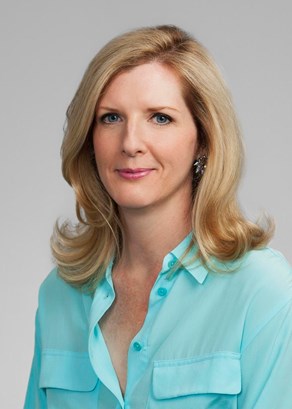5 minutes with Kathryn Ruemmler
 When did you decide to become a lawyer? Why?
When did you decide to become a lawyer? Why?
I decided that I wanted to be a lawyer around the age of ten. As a young girl, I was a voracious reader and had read a number of books with lawyers as characters or protagonists. I loved the idea of fighting on behalf of someone with your brain and your words. Before law school, I had never met a lawyer.
Starting out, what did you expect from a career in the law?
I had no role models and therefore no expectations. In retrospect, the absence of expectations was liberating because I took risks in my career without knowing any better.
Has it lived up to your expectations?
Absolutely. I have had the opportunity for incredible experiences in the law.
How did you get into the areas of law you are known for today? By design? Chance? Both?
A little bit of both. I was drawn to human stories in law, and in law school, I considered pursuing labor and employment law. Then, in my second year of law school, I had the opportunity to work as an intern in the Criminal Division of the Justice Department, and I was hooked. I have been practicing, as a prosecutor or a defense attorney, in that area ever since.
What do you consider to have been your big break?
I have had so many breaks, but if I had to pick one it would be getting a chance to work on the investigation into the collapse of Enron at the age of 32 because of the recommendation of my now-partner, Alice Fisher.
What differences do you see in today's legal market compared to when you started?
When I started as a young associate in DC at the litigation and white-collar boutique Zuckerman Spaeder, there were still relatively few firms with big white-collar practices. Now, almost 20 years later, virtually every firm has a significant white-collar practice, which obviously translates into increased competition and specialization. What thankfully has not changed is the collegiality of the white-collar Bar.
"Virtually every firm has a significant white-collar practice, which obviously translates into increased competition and specialization."
What achievement are you most proud of?
I am proud that when serving as a government official, I did not lose sight of the awesome responsibility that comes with having the power of the US Government behind your actions and the need to exercise that power responsibly and with fairness and restraint. I hope that I imparted that sense of responsibility to the younger government lawyers who worked with me.
What do you consider your greatest failure or regret?
My failures are too numerous to list, but my biggest regret is that my Dad who died in 2012 never got to see me in court.
What have you enjoyed most during your career in the legal profession?
With no close second, what I have enjoyed most is the amazing people – clients, colleagues, adversaries, judges – I have met along the way, virtually all of whom are now my dear and lifelong friends.
And enjoyed least?
The tendency toward arrogance of some in the profession.
What law would you change, abolish or create?
This is not a change in law, but I would streamline the Senate confirmation process for Presidential appointees.
Who is your legal hero?
My mentor and friend, and former White House Counsel, Bob Bauer.
What career would you have in your second life?
A hiking guide.
What slogan would you like to be remembered by?
As my legal hero (see above) has put it: "She told it like it was; she never put even light icing on the cake."
What advice would you give to students trying to enter the legal profession today?
It is a tough, competitive profession, but there will always be a place for true professionals.
And secondly, to those who hope to ultimately get into the areas of law in which you are expert?
Your integrity is your greatest asset. Protect it, always.